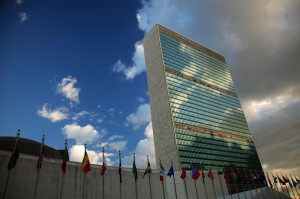
Newly elected to the Geneva-based body are Brazil, Croatia, Egypt, Hungary, Iraq, Japan, Rwanda, Tunisia and United States. Re-elected for an additional term are China, Cuba, Saudi Arabia, South Africa and the United Kingdom. All would serve three-year terms beginning on 1 January 2017.
The outgoing members are Algeria, France, Maldives, Mexico, Morocco, Namibia, Russian Federation, the former Yugoslav Republic of Macedonia, and Viet Nam.
Members of the Council serve for a period of three years and are eligible for immediate re-election except the delegation which had served two consecutive terms, namely Maldives.
The 14 new members were elected according to the following pattern: four seats for African States; four seats for Asia-Pacific States; two seats for Eastern European States; two seats for Latin American and Caribbean States; and two seats for Western European and other States.
Assembly President Peter Thomson (Fiji) announced that the following States would also continue as members of the Council: Albania, Bangladesh, Belgium, Bolivia, Botswana, Burundi, Congo, Côte d’Ivoire, Ecuador, El Salvador, Ethiopia, Georgia, Germany, Ghana, India, Indonesia, Kenya, Kyrgyzstan, Latvia, Mongolia, Netherlands, Nigeria, Panama, Paraguay, Philippines, Portugal, Qatar, Republic of Korea, Slovenia, Switzerland, Togo, United Arab Emirates and Venezuela.
Created by the Assembly in 2006, the 47-member Council is an inter-governmental body within the UN system responsible for strengthening the promotion and protection of human rights around the globe and for addressing situations of human rights violations and making recommendations on them.
All of its members are elected by the world body’s General Assembly, and it has the ability to discuss all thematic human rights issues and situations that require its attention throughout the year. It meets at the UN Office at Geneva.
On the basis of equitable geographical distribution, Council seats are allocated to the five regional groups as follows: African States, 13 seats; Asia-Pacific States, 13 seats; Eastern European States, six seats; Latin American and Caribbean States, eight seats; and Western European and other States, seven seats.








